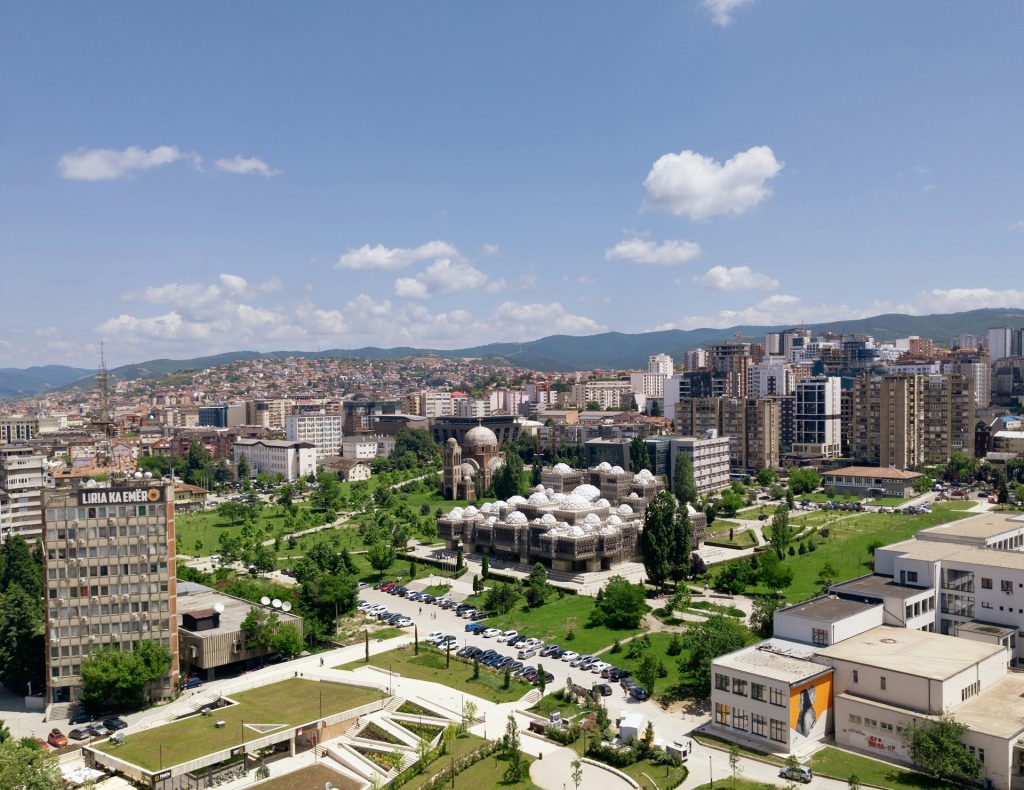Lifepanel’s latest monthly political survey reveals a dynamic and increasingly unpredictable political landscape in North Macedonia as the April elections draw closer. Here’s a breakdown of the key findings, comparing February and March results:
Realignment Among Macedonian Parties
The balance of power among the main Macedonian parties appears to be in transition. The opposition party, VMRO-DPMNE, is experiencing a cautious rise in support, inching up from 21.5% in February to 22.4% in March. This could signal a potential shift in sentiment among the electorate. Conversely, the ruling party, SDSM, and the left-wing Levica are witnessing a decline in popularity. SDSM’s support dropped from 7.8% to 6.9%, while Levica’s went from 8.4% to 7.9%. These trends suggest that some voters may be looking for an alternative or are yet to be convinced by the current governing parties.
Which political party would you vote for in the upcoming election? February vs March
Unrest Among Albanian Parties
The picture is even more unsettled when we look at the Albanian parties. The leading Albanian party, DUI, appears to be facing a potential erosion of its voter base. In February, 11.9% of the respondents indicated their intention to vote for DUI. However, that number plummeted to a concerning 7.9% in March, representing a significant 4% drop in just one month. The Alliance for Albanians is also confronting a decline in support, with 4.3% intending to vote for them in February compared to a meager 2% in March. This suggests a possible loss of confidence among some Albanian voters in these established parties.
In contrast to the downward trends for other Albanian parties, BESA seems to be experiencing a positive shift. They gained support, rising from 2% in February to 3.1% in March. While this is a modest increase, it could signal a growing interest in BESA as an alternative option for Albanian voters.
The Rise of the Undecided
A particularly worrying trend is the significant increase in undecided voters. While 7.8% were unsure of their choice in February, this number more than doubled to a concerning 15.8% in March. This suggests a growing sense of disillusionment or lack of faith in the current political offerings. The parties have a limited window to address these concerns and solidify their platforms before April.
There is a sliver of positive news, however. The percentage of people who said they wouldn’t vote decreased from 25.5% in February to 22.3% in March. This indicates a potential increase in voter turnout, which could be crucial in determining the outcome of the elections.
Lifepanel’s findings paint a picture of a dynamic and increasingly unpredictable political landscape in North Macedonia. The established parties are facing challenges, with voters potentially looking for change. The rise of BESA and the significant number of undecided voters add further intrigue to the upcoming elections. With a large portion of the electorate still on the fence, the April elections are shaping up to be a close race with an uncertain outcome. Parties that can effectively address the concerns of the electorate and capture the imagination of undecided voters will likely be best positioned to succeed.
Lifepanel survey also explored public confidence in the upcoming North Macedonian elections. The survey specifically addressed concerns about fairness and freedom of the electoral process. The results are segmented by demographics, including gender, age, and education level. This breakdown allows for a deeper understanding of how these factors influence perceptions of the election.
Age groups comparison
The survey exposes a significant correlation between age and trust in the elections. A staggering 85.3% of voters over 65 believe the elections will be rigged. This skepticism is worryingly prevalent across all age groups, with over half of voters in each category expressing similar concerns. These figures point to a deep-seated disillusionment with the political climate and a potential crisis of faith in democratic institutions.
To what extent do you agree that the electoral processes in your country are free and fair? Age group comparison
Education Level Comparison
Education level offered no solace either. Over half of voters with university degrees (58.8%) doubt the fairness of the elections. This skepticism is only marginally lower for those with even higher education (Ph.D.). The numbers are even higher for those with primary and secondary education. While there’s no clear linear trend based on education, a significant majority across the board lacks faith in the process.
To what extent do you agree that the electoral processes in your country are free and fair? Education level comparison
Gender Comparison
The survey also reveals a gender gap in trust, with 65.1% of female respondents believing the elections won’t be free and fair. While a lower percentage (59.8%), men still share this concern.
To what extent do you agree that the electoral processes in your country are free and fair? Gender comparison
Does Voting Even Matter?
Perhaps the most concerning finding is the widespread belief that voting won’t make a difference. Over half of voters under 29 feel their vote won’t count.
Do you think your vote would influence the outcome of this year’s parliamentary elections? Age group comparison
This sentiment is worryingly consistent across other age groups as well. Broken down by gender, a significant portion of both men and women believe their vote is meaningless. This apathy, coupled with the lack of trust, raises serious questions about the legitimacy of the upcoming elections.
Do you think your vote would influence the outcome of this year’s parliamentary elections? Gender comparison
These findings paint a concerning picture for North Macedonia’s democracy. To restore trust, the government and election authorities must take immediate steps, such as:
- Increasing transparency in campaign financing and election procedures.
- Demonstrating a strong commitment to investigating and prosecuting electoral fraud.
- Encouraging open dialogue between citizens and political leaders.
By taking these steps, they can begin to address public concerns and ensure a successful and legitimate election.
The survey was conducted in February and March on 973 respondents over 16 years old and was based on a nationally representative sample of North Macedonian adults, with 95% confidence a given range contains the true result at a population level and an error margin of 2.5%. The results are weighted, base weights are calibrated for age, gender, educational attainment level and place of residence and adjusted for non-response.


